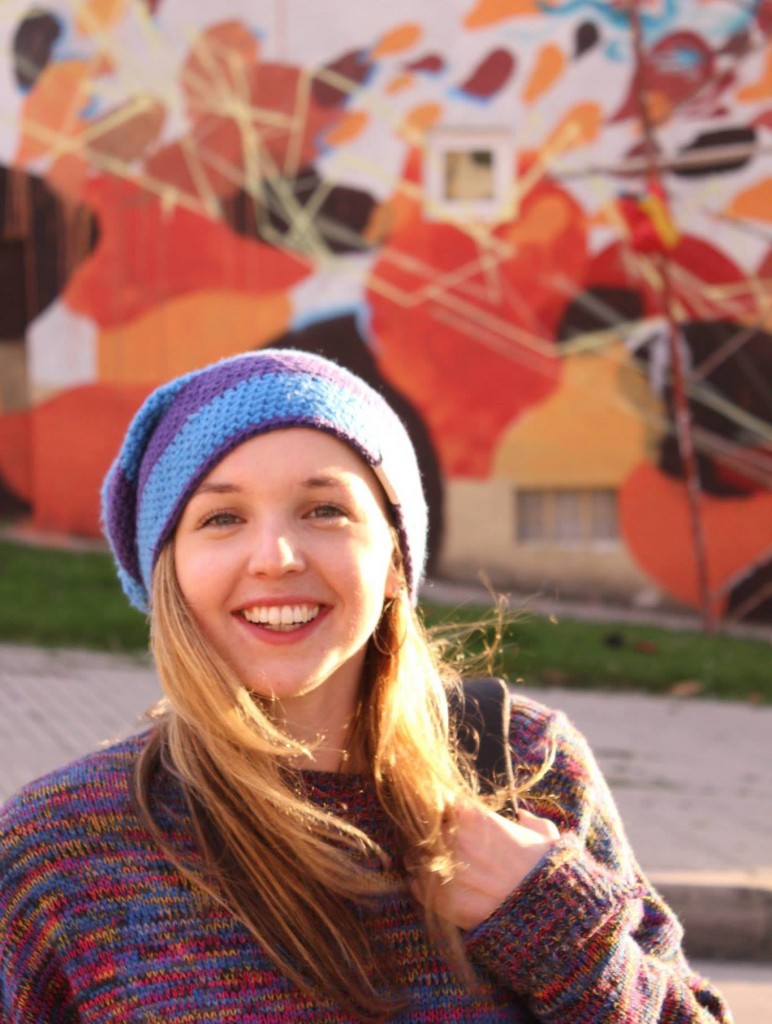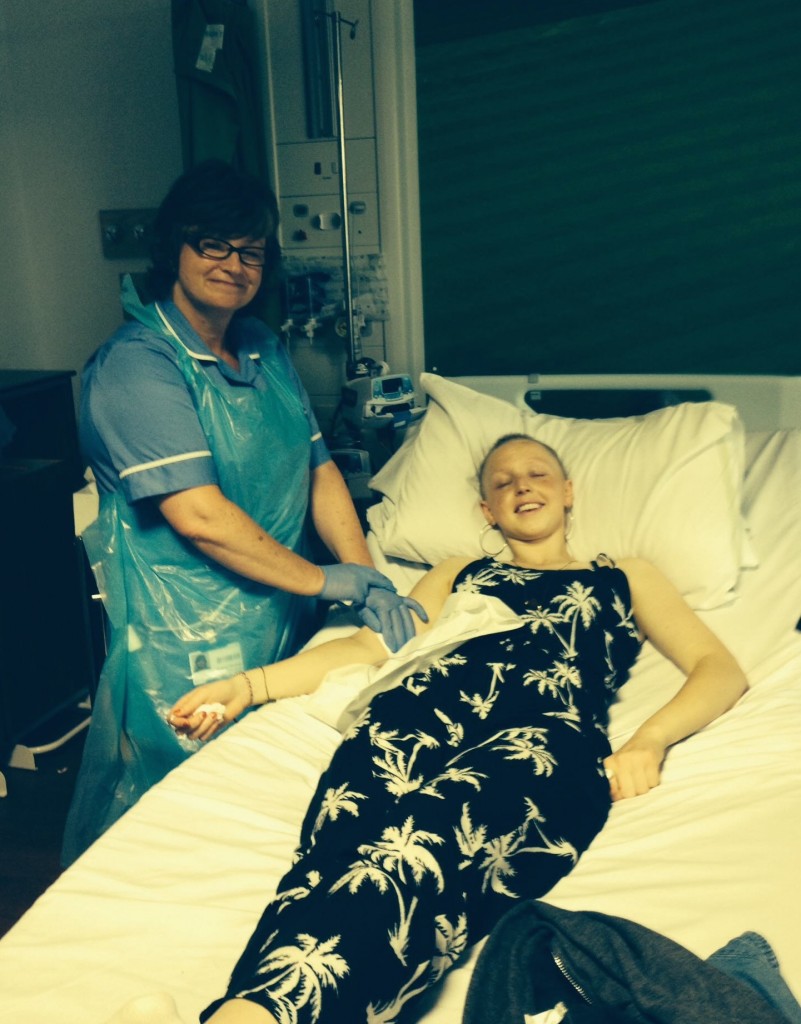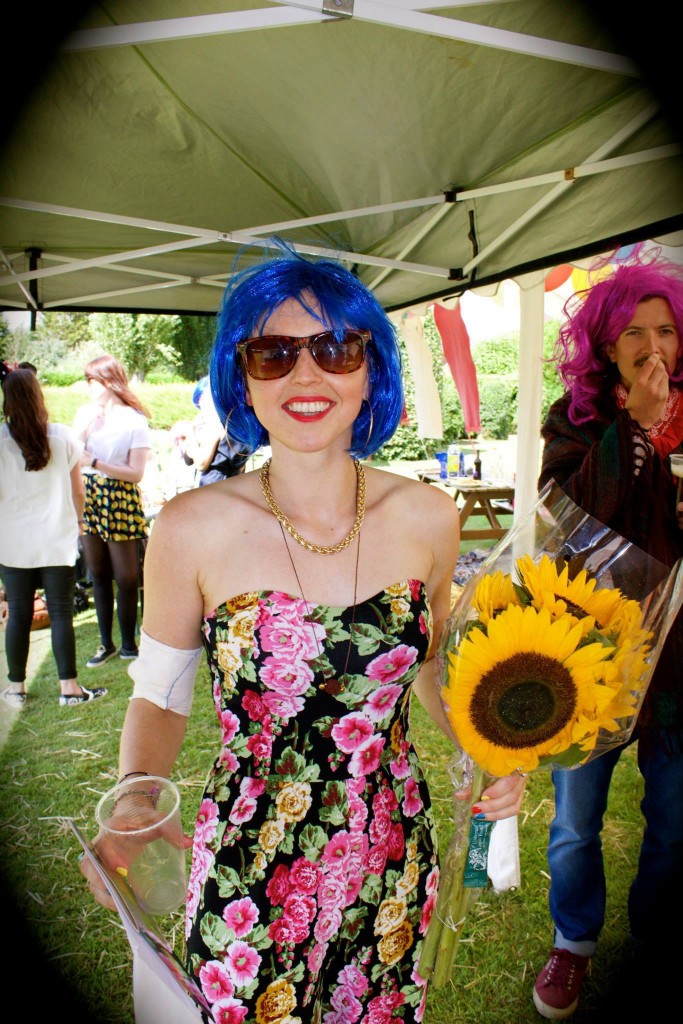“Hearing you need lifesaving treatment at any age is scary, and at 23 – when you’re just finding your way in the world – it was terrifying.”
On 4 February people across the globe will join together to challenge cancer on World Cancer Day 2016. Around 2,200 young people and teenagers are diagnosed with cancer every year and one in two people in the United Kingdom will receive a cancer diagnosis at some point in their lives, a statistic that acts as a shocking reminder about the importance of leading a healthy lifestyle.
Sophie Trew, 25, from Hampshire is well aware of the statistics. In 2013, at the young age of 23, she was diagnosed with Hodgkin’s Lymphoma. Following six months of chemotherapy, she is now in recovery. In 2015 Sophie founded Trew Talks, an initiative that aims to encourage discussion about ways to challenge cancer. Each week she posts a new video covering topics such as nutrition, natural healing and mindfulness, all based on her own experiences. Explaining her motivation for starting the blog, Sophie said:
“The amount of people dying from cancer around me and the lack of information inspired me to start Trew Talks. I’m sharing everything that worked for me on a variety of topics in different videos over the next year calling the series 52 Ways to Challenge Cancer.”
Here Sophie writes for the IPF about Trew Talks, holistic treatments and her personal journey to recovery.
With a degree in journalism I wanted to become Louis Theroux’s documentary sidekick and after graduating I was fortunate to be awarded a scholarship to produce a documentary in Colombia. Upon arriving back home, the production world was in sight. But then I got diagnosed with Hodgkin’s Lymphoma, and suddenly everything changed.
It started with a lump on my neck that I thought was nothing serious, but after several weeks of hospital visits, misdiagnosis’, night sweats and fatigue I heard I needed to start immediate chemotherapy for six months. Hearing you need lifesaving treatment at any age is scary, and at 23 – when you’re just finding your way in the world – it was terrifying.
Cancer is a destructive yet transformative disease. It was a big blow to my confidence – I thought I was healthy, but clearly something else was going on. When I first heard the cancer word, being bald was one of the first things that sprung to mind. I used to have the shower on just as a trickle so my hair wouldn’t fall out in clumps. A lot of what happens with cancer is deeply personal but losing your hair is public.
People start to give you sympathetic looks or asked, ‘Where’s your hair gone?” I used to hear hair comments every day. Once adjusted, I actually quite enjoyed experimenting and there is something so liberating about having a shaved head. I had fun with it and tried out new colourful wigs.
At this point my perspective and life completely changed. I wanted to know why so many people were getting cancer and if there was anything we could do to help ourselves. After a lot of research and personal experimenting I realised that there is a lot more we can be doing. I feel there are big gaps in practical support, advice on recovery, and prevention of the disease. When I was diagnosed I was told to make no lifestyle changes because they made no difference to cancer. This is certainly not true and worrying advice.
There are factors including diet, exercises, detoxification and mental attitude that are essential to recovery and we must start talking more about this. Cancer is a serious topic and information can empower people to take charge of their health.
Conventional cancer care treats the problem but it does not address the cause. We cut, poison and radiate bodies and then do nothing else to help them heal. These treatments destroy the immune system; the exact system we need to be building up to survive. There is a Chinese saying: “Treating a person when they become ill is like starting to dig a well when you are thirsty.”
There are many things you can do to help prevent and recover from cancer but these aren’t spoken about enough. The government spend billions of pounds a year on seeking cancer cures and only a small percentage of this goes on prevention.
Modern medicine needs to treat the total patient, rather than merely the cancer. I strongly believe we are three parts in synergy mind, body and soul. Integrative cancer care approach combining conventional and holistic treatments are essential.
As for diet, Burger King was the only restaurant in the hospital I was treated in. Food from nature is medicine, and food is poison when it’s processed. Our bodies simply aren’t designed to digest all the chemicals.
Whilst I am aware that there are a number of factors leading to disease, many cancers are caused by the accumulation of toxins – both environmental and diet – and it would be great if the health industry focused more on this. Cancer treatment needs to cover a range of aspects and be an all-embracing multi-stage treatment plan. We don’t have 10 or 20 years to wait, people are dying now.
The stages individuals have to go through to recover are as unique as our different illnesses. People with the same cancers respond differently to the same treatments, hence why we need to be looking at the cause.
Personally, chemotherapy slowly destroyed my body so to keep sane I meditated, had homeopathy, reiki and changed my diet to cut out dairy, sugar, most gluten and meat.
Holistic treatments boost the immune system to fight cancer cells and stop them spreading and are often based on traditional, natural healing. Holistic healing works by giving the body everything it needs to heal: nutrients, strength and the right mental state. Anything that uplifts a person and helps them to feel more positive about a situation is effective. Negativity brings down your immune system and to recover from cancer it’s essential to boost it. This is difficult at such a testing, worrying time but visualisation, relaxation and meditation can be very helpful.
For information on holistic healing I’d recommend looking at integrative medicine. There are groups on Facebook and local cancer centres like Penny Brohn, or healing centres that run retreats. Also the Truth about Cancer documentary series is a brilliant resource to help you get educated or knowledgeable on the topic if you’re ill or want to prevent it.
I want to be able to inspire people to take a more active role in their health and give them information about all the options available to them.
By the end of the year I want to be in a position to run workshops and events. I want to raise awareness about cancer prevention and start a conversation around this. In the longer term I’d love to travel the world interviewing different experts and visiting clinics, do a course in naturopathy, Chinese medicine and work for a charity in health development.
If you’re under 24, Teenage Cancer Trust have done a fantastic job at creating Young People’s Units at different hospitals. Then there’s Clic sargent who can help with support work, financial grants and payments for wigs. But if you’re over 24, you receive very little support as despite still being very vulnerable, young people are an age group that largely get overlooked. I’m excited to say I’m starting work with a young charity, Victoria’s Promise that aims to support young women throughout their treatment. They’re a great team looking to make a real difference to help a vulnerable age group.
Post-cancer, physically you can bounce back. Mentally getting back to normality can take a bit longer.
It’s like learning to be again with a new look and while everyone is progressing with their lives – as amazing as people are in support it can be daunting when you finish treatment. It’s also left me confused about how to live now. At first I felt guilty the day after a big night out, worried I might get ill again, but life is for fun and you’ve got to live.
Despite all this, and as strange as it sounds, I would not take back my diagnosis. I’m grateful for the lessons, the experiences and the people I’ve met. I’ve tried to look at it as a chance to re-invent my look – being bald means you get to start afresh! After making the decision to do my own research, I now feel more energetic than I did before armed with new knowledge on trying to lead a non-toxic life.
To find out more about Sophie’s journey, subscribe to Trew Talks on Youtube and like the Facebook page.
NB: The IPF’s opinion articles are a place for thought-provoking views and debate. These views are not necessarily endorsed by the IPF.




